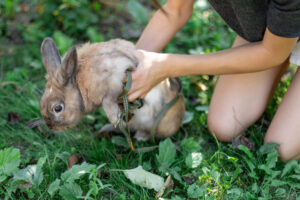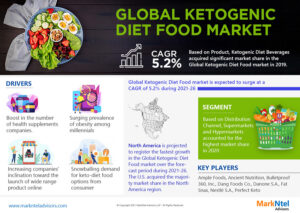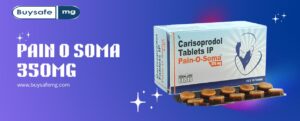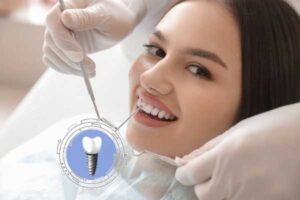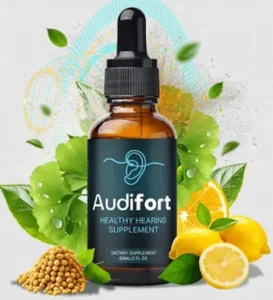Top 7 Nutritional Solutions for PCOS and Hair Loss!
Let’s talk about something a lot of women deal with but don’t talk about enough—PCOS and hair loss. If you’ve...

Let’s talk about something a lot of women deal with but don’t talk about enough—PCOS and hair loss. If you’ve Googled “nutritional solutions for PCOS and hair loss,” you’re not alone. I’ve been there too—tired, frustrated, and not sure who to listen to.
PCOS messes with your hormones, which then messes with your hair, skin, mood, energy—basically, everything. And the worst part? You try to fix one thing (like hair loss), and something else gets thrown out of balance.
But food can help. A lot.
This post isn’t about quick fixes or selling magic powders. These are real, practical food-based strategies from my own experience and chats with the best nutritionists online. Not to sound dramatic, but small diet shifts changed my life.
Let’s break it down.
Top 7 Nutritional Solutions for PCOS and Hair Loss
1. Balance Your Blood Sugar First (Seriously, Do This)
Before you try fancy supplements or expensive products, you need to get your blood sugar under control. PCOS and insulin resistance often go hand-in-hand, and unstable blood sugar can trigger more hair loss.
Here’s how I keep mine steady:
- Add protein to every meal. Eggs, tofu, lentils—whatever works for you. No carb-only meals.
- Cut back on refined carbs. I still eat bread, just not white bread three times a day.
- Eat regularly. Skipping meals throws your system off.
I used to go from starving to stuffed. Now I aim for steady and satisfied.
Blood sugar balance = hormone balance = happier scalp.
2. Don’t Be Scared of Healthy Fats
If you’ve been avoiding fats because of old diet rules, please stop. Your hormones need fat. Your hair follicles need fat.
Some of the best healthy fats for PCOS and hair:
- Avocados (I know, cliché, but they work)
- Extra virgin olive oil
- Nuts like almonds and walnuts
- Seeds (especially flax and chia)
- Fatty fish like salmon (or a good omega-3 supplement)
I noticed less hair fall when I started adding a tablespoon of ground flaxseeds to my morning oats. Coincidence? Maybe. But it’s been over a year and I haven’t stopped.
3. Pump Up the Protein (Your Hair Will Thank You)
Hair is mostly protein. If you’re not eating enough of it, your body won’t “waste” resources making hair—it’ll use that protein for more important stuff.
Easy protein sources that helped me:
- Greek yogurt (unsweetened)
- Eggs (whole eggs, not just whites)
- Chicken or turkey
- Tofu and tempeh
- Protein powders (just watch the ingredients)
If you’re vegan or vegetarian, it’s even more important to plan your protein. I started tracking mine using a basic food app—not obsessively, just to check I was getting 60–80g a day. Game changer.
4. Include Zinc and Iron-Rich Foods Daily
Low zinc and iron are common in women with PCOS. And guess what? Both are linked to hair loss.
Foods that naturally support better levels:
- Zinc: Pumpkin seeds, cashews, lentils, chickpeas, oats
- Iron: Spinach, red meat, lentils, blackstrap molasses, quinoa
A quick tip: Pair iron-rich foods with vitamin C (like squeezing lemon over spinach) to absorb it better.
I used to take iron pills, but they wrecked my digestion. Now I get it mostly from food, and it’s been much gentler.
5. Ditch Dairy (Just Try It for 30 Days)
Okay, this one’s controversial. But hear me out.
A lot of nutritionists who work with women with PCOS suggest cutting out dairy—at least temporarily. For some, it makes a difference in acne, bloating, and yes, even hair health.
I cut dairy for a month. Here’s what happened:
- My skin calmed down.
- I felt less puffy overall.
- Hair fall reduced—not dramatically, but noticeably.
I slowly added back things like ghee and aged cheese, but I skip the daily lattes now.
You don’t have to quit forever. But if you’re struggling with hormonal symptoms and hair issues, it’s worth testing.
6. Support Your Gut (It’s Connected to Everything)
Your gut isn’t just about digestion. It’s connected to hormones, inflammation, and even your scalp health.
An unbalanced gut can lead to nutrient malabsorption, which means even if you eat well, your body might not absorb what it needs.
Here’s what helped me:
- Daily probiotics (I use a basic one, nothing fancy)
- Fermented foods like kimchi, sauerkraut, and kefir (if you tolerate dairy)
- Plenty of fiber from veggies, fruits, and legumes
- Drinking enough water (basic, but easy to overlook)
When my gut felt better, my cravings dropped. I wasn’t constantly snacking or crashing in the afternoon. That helped with insulin resistance too.
Everything is connected.
7. Don’t Rely on Supplements Alone—But Use Them Smartly
Supplements aren’t bad. But they’re not magic pills either. I’ve tried a lot. Some helped, others did nothing. The key is to use them to fill gaps, not fix your whole diet.
Here are a few that came recommended by trusted online nutritionists:
- Inositol – helps with insulin sensitivity and ovulation
- Vitamin D – check your levels, many of us are low
- Omega-3s – reduces inflammation, supports hair
- Zinc – supports hormonal balance and hair regrowth
But don’t self-diagnose. Always best to test and check with a professional before loading up.
A Few More Practical Things That Helped Me
These didn’t fall neatly into one category, but they mattered:
- Track your cycle. I use a basic period tracker to notice patterns in mood, skin, and hair.
- Reduce stress. I know, easier said than done. But even short walks and saying “no” helped.
- Sleep 7–8 hours. Your body can’t heal or balance anything without decent sleep.
If you’re Googling “nutritional solutions for PCOS and hair loss,” you probably feel overwhelmed. There’s so much info out there, and it often feels like you’re doing everything “right” but still not seeing results.
Start with one or two changes. Maybe it’s eating protein with every meal. Or cutting out dairy for a bit. Or just drinking more water.
You don’t have to fix everything overnight. It’s not about perfection—it’s about direction.
And honestly, even if your hair doesn’t bounce back instantly, your body will feel better. You’ll have more energy. Fewer crashes. More control.
That’s a win.
Real People, Real Results
I’m not a doctor. I’m not pretending to be. But I’ve lived this. And I’ve learned a lot from working with certified nutritionists online—ones who focus on food first, not fads.
If you’re serious about tackling PCOS and hair loss, nutrition is a key part of it. Probably the most underrated one.
So yeah, it’s not always exciting. Eating enough protein doesn’t sound revolutionary. But over time? It adds up.
And you’re not alone.

